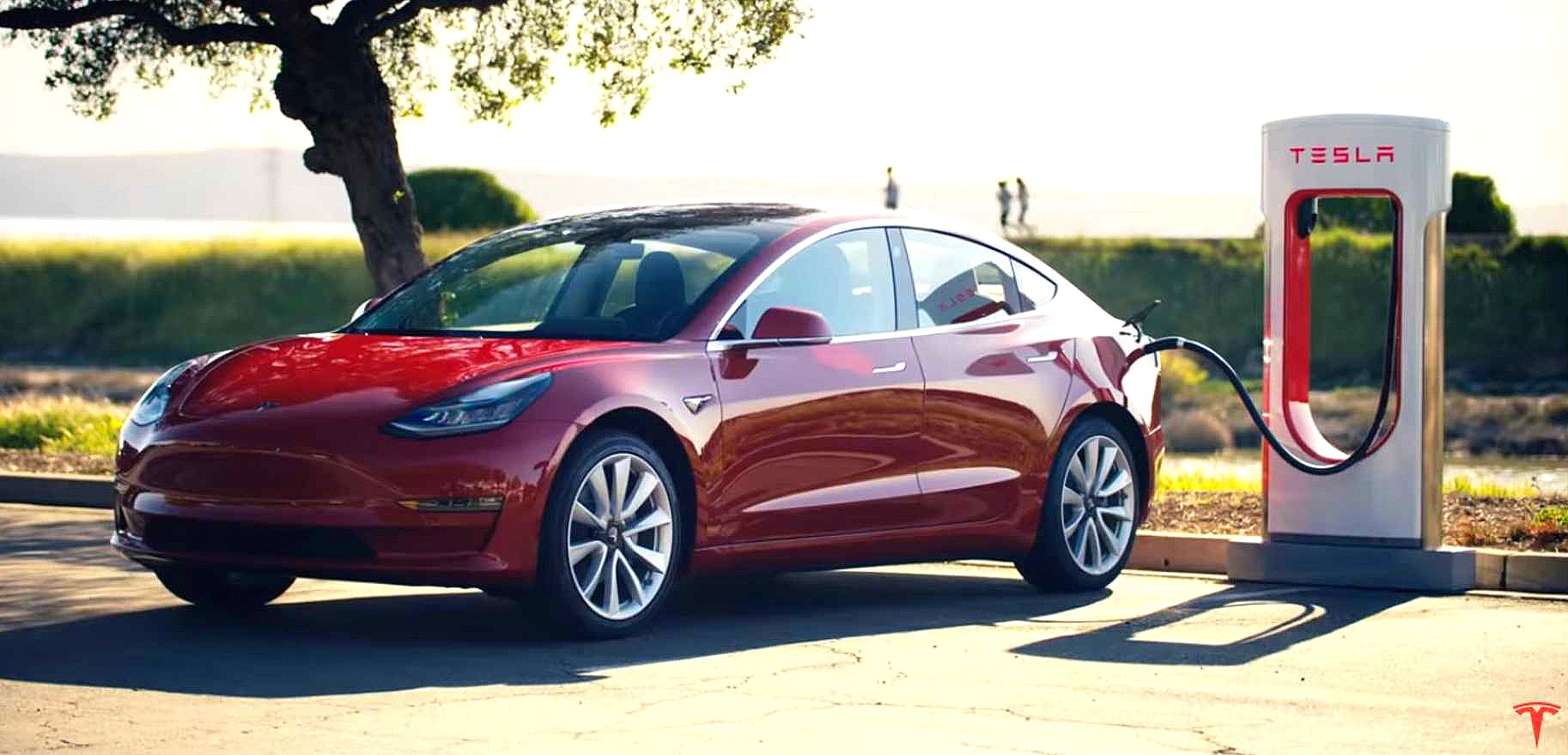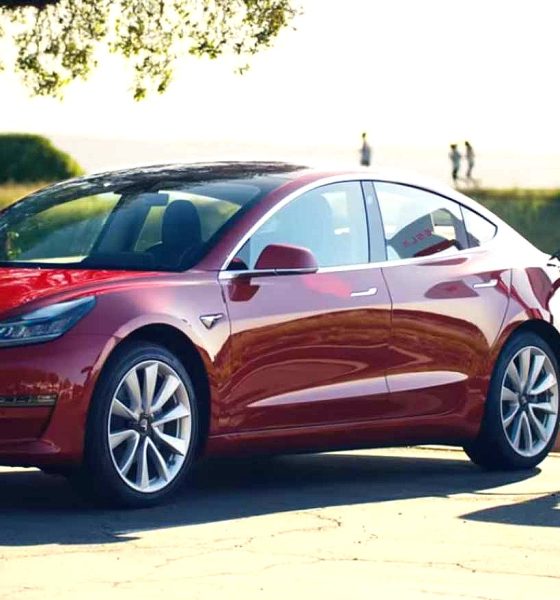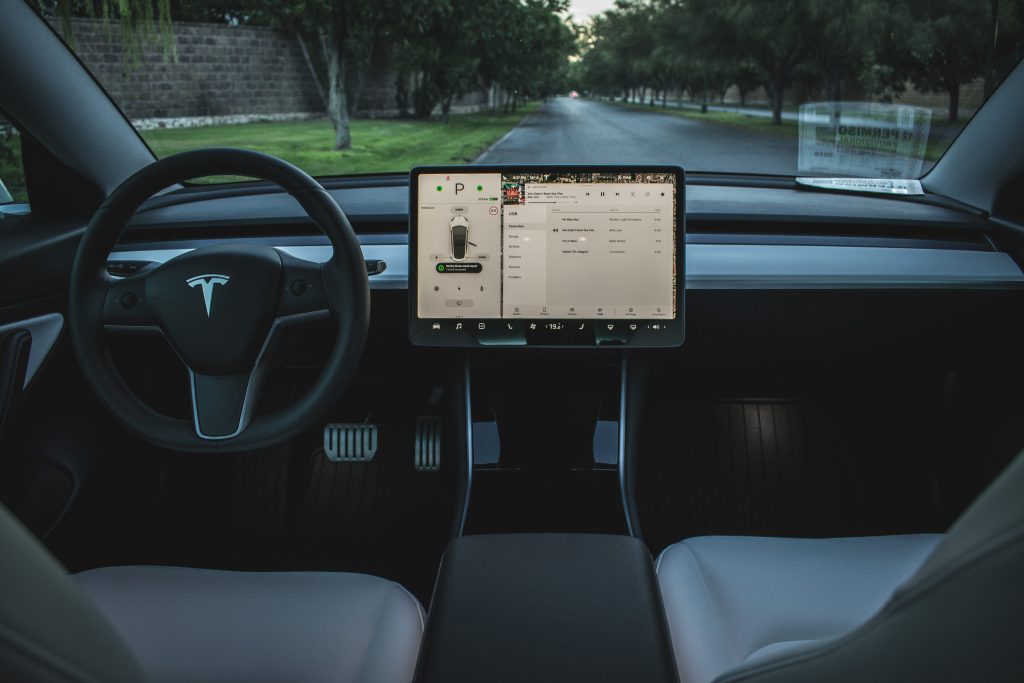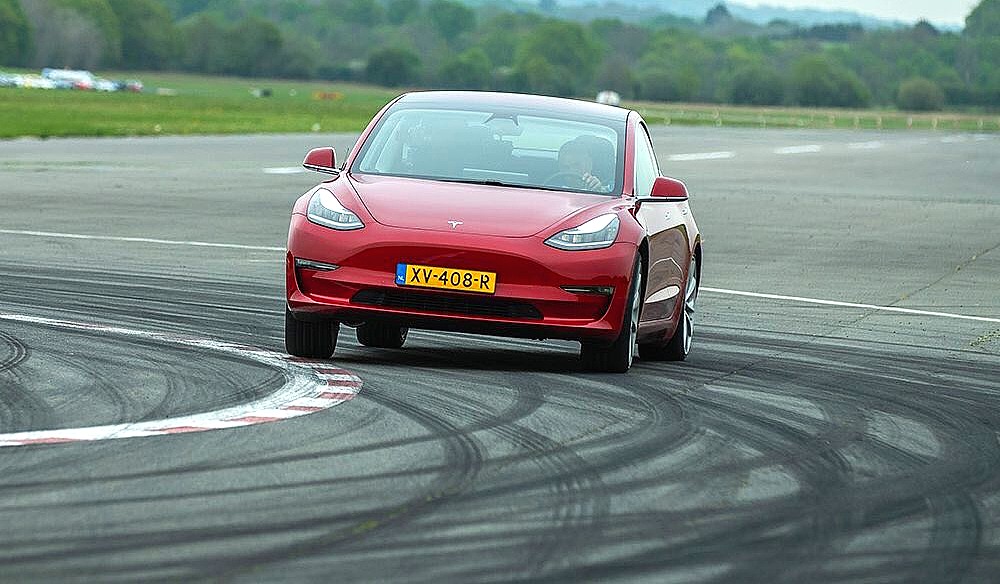

Investor's Corner
The Tesla Model 3’s defiance of TSLA critics and its EV market dominance explained
To state that Tesla (NASDAQ:TSLA) is a polarizing company would be an understatement. Tesla commands a strong following, comprised of avid supporters and passionate critics alike. This was particularly evident in the Model 3, a car that was declared a “lemon” by critics at one point, and a car that has become one of the most popular electric cars in the industry today.
The Model 3 has its own fair share of critics. Last September, high-profile TSLA short Jim Chanos declared that the Model 3 has inherent problems that make it a “lemon.” Seemingly in response to Chanos’ statement, the Model 3 dominated the US luxury auto market in 2018, and with its international rollout this year, the vehicle has also started making an impact in markets such as Norway and China.
TSLA investor @Incentives101, an economist with a background in macro research, stated in a message to Teslarati that Tesla’s vehicles, particularly the Model 3, defied several conventions when it was released. With its unique combination of uncompromising performance, efficiency, and a reasonable price, the Model 3 has become a vehicle that constantly defies critics every step of the way.

The economist explained that consumers purchase vehicles according to preferences that are subject to budget constraints. The buying process then becomes a matter of selecting which car is the best option within the confines of a budget. “Consumers preferences can be easily understood when there is data available i.e when they clearly show what they want. With a car or any good for that matter, consumers are basically solving an optimization problem. Hence, this is why advanced economic models — general equilibrium — are on essence an optimization problem,” the economist wrote.
There are many variables that consumers consider when purchasing a big-ticket item such as a car. Generally, there are no internal combustion vehicles that are as efficient as an electric car, but EVs prior to Teslas usually had worse performance and a higher price, which, in turn, discouraged buyers despite their lower total cost of ownership. Electric cars before the arrival of the original Tesla Roadster and the Model S also introduced a new constraint: range. Under these circumstances, it was not rare to see buyers who valued efficiency and/or are not price-sensitive selecting an EV, and those that valued performance and price opting for a petrol-powered car.
It is these very metrics that the Tesla Model 3 was able to completely address. Tesla refused to compromise with the Model 3, making the electric sedan a vehicle that is incredibly efficient with performance that matches the best that the industry has to offer. What’s remarkable was that Tesla was able to accomplish this while keeping the Model 3’s price reasonable. And this, according to the economist, has resonated with consumers. “When Elon Musk says it’s insane to buy something else other than a Tesla, it’s because it literally is. You can prove it with math,” the economist stated.

The researcher added that this is one of the key reasons why Tesla and the Model 3 have proven incredibly resilient despite the negative narrative surrounding the vehicle and the company as a whole. It is also something that is frequently misunderstood by mainstream analysts and the company’s critics alike. Fortunately for Tesla, consumers by nature are drawn to superior products, and this is steadily becoming more and more pronounced with the Model 3’s international expansion.
“Whenever you read experts saying that Tesla has a 10-year advantage, this is what it means. When the media and Wall Street compare Tesla to other OEMs, when they talk about units of cars vs. other OEMs, it really doesn’t matter. None of them can find an example in history when consumers have behaved as irrationally as what they’re implying. No matter how many hit pieces about Elon Musk or Tesla, how many stock downgrades, how many bear notes, consumers won’t care about it. We already know what consumers care about; it will be impossible to stop it,” the economist wrote.
Tesla stock has so far slipped around 32% this year, following a challenging first quarter and another loss in the second quarter despite record delivery numbers. By contrast, the S&P 500 has risen about 16.7% year to date.
Disclosure: I have no ownership in shares of TSLA and have no plans to initiate any positions within 72 hours.

Elon Musk
Tesla stock gets latest synopsis from Jim Cramer: ‘It’s actually a robotics company’
“Turns out it’s actually a robotics and Cybercab company, and I want to buy, buy, buy. Yes, Tesla’s the paper that turned into scissors in one session,” Cramer said.

Tesla stock (NASDAQ: TSLA) got its latest synopsis from Wall Street analyst Jim Cramer, who finally realized something that many fans of the company have known all along: it’s not a car company. Instead, it’s a robotics company.
In a recent note that was released after Tesla reported Earnings in late January, Cramer seemed to recognize that the underwhelming financials and overall performance of the automotive division were not representative of the current state of affairs.
Instead, we’re seeing a company transition itself away from its early identity, essentially evolving like a caterpillar into a butterfly.
The narrative of the Earnings Call was simple: We’re not a car company, at least not from a birds-eye view. We’re an AI and Robotics company, and we are transitioning to this quicker than most people realize.
Tesla stock gets another analysis from Jim Cramer, and investors will like it
Tesla’s Q4 Earnings Call featured plenty of analysis from CEO Elon Musk and others, and some of the more minor details of the call were even indicative of a company that is moving toward AI instead of its cars. For example, the Model S and Model X will be no more after Q2, as Musk said that they serve relatively no purpose for the future.
Instead, Tesla is shifting its focus to the vehicles catered for autonomy and its Robotaxi and self-driving efforts.
Cramer recognizes this:
“…we got results from Tesla, which actually beat numbers, but nobody cares about the numbers here, as electric vehicles are the past. And according to CEO Elon Musk, the future of this company comes down to Cybercabs and humanoid robots. Stock fell more than 3% the next day. That may be because their capital expenditures budget was higher than expected, or maybe people wanted more details from the new businesses. At this point, I think Musk acolytes might be more excited about SpaceX, which is planning to come public later this year.”
He continued, highlighting the company’s true transition away from vehicles to its Cybercab, Optimus, and AI ambitions:
“I know it’s hard to believe how quickly this market can change its attitude. Last night, I heard a disastrous car company speak. Turns out it’s actually a robotics and Cybercab company, and I want to buy, buy, buy. Yes, Tesla’s the paper that turned into scissors in one session. I didn’t like it as a car company. Boy, I love it as a Cybercab and humanoid robot juggernaut. Call me a buyer and give me five robots while I’m at it.”
Cramer’s narrative seems to fit that of the most bullish Tesla investors. Anyone who is labeled a “permabull” has been echoing a similar sentiment over the past several years: Tesla is not a car company any longer.
Instead, the true focus is on the future and the potential that AI and Robotics bring to the company. It is truly difficult to put Tesla shares in the same group as companies like Ford, General Motors, and others.
Tesla shares are down less than half a percent at the time of publishing, trading at $423.69.
Elon Musk
Tesla to a $100T market cap? Elon Musk’s response may shock you

There are a lot of Tesla bulls out there who have astronomical expectations for the company, especially as its arm of reach has gone well past automotive and energy and entered artificial intelligence and robotics.
However, some of the most bullish Tesla investors believe the company could become worth $100 trillion, and CEO Elon Musk does not believe that number is completely out of the question, even if it sounds almost ridiculous.
To put that number into perspective, the top ten most valuable companies in the world — NVIDIA, Apple, Alphabet, Microsoft, Amazon, TSMC, Meta, Saudi Aramco, Broadcom, and Tesla — are worth roughly $26 trillion.
Will Tesla join the fold? Predicting a triple merger with SpaceX and xAI
Cathie Wood of ARK Invest believes the number is reasonable considering Tesla’s long-reaching industry ambitions:
“…in the world of AI, what do you have to have to win? You have to have proprietary data, and think about all the proprietary data he has, different kinds of proprietary data. Tesla, the language of the road; Neuralink, multiomics data; nobody else has that data. X, nobody else has that data either. I could see $100 trillion. I think it’s going to happen because of convergence. I think Tesla is the leading candidate [for $100 trillion] for the reason I just said.”
Musk said late last year that all of his companies seem to be “heading toward convergence,” and it’s started to come to fruition. Tesla invested in xAI, as revealed in its Q4 Earnings Shareholder Deck, and SpaceX recently acquired xAI, marking the first step in the potential for a massive umbrella of companies under Musk’s watch.
SpaceX officially acquires xAI, merging rockets with AI expertise
Now that it is happening, it seems Musk is even more enthusiastic about a massive valuation that would swell to nearly four-times the value of the top ten most valuable companies in the world currently, as he said on X, the idea of a $100 trillion valuation is “not impossible.”
It’s not impossible
— Elon Musk (@elonmusk) February 6, 2026
Tesla is not just a car company. With its many projects, including the launch of Robotaxi, the progress of the Optimus robot, and its AI ambitions, it has the potential to continue gaining value at an accelerating rate.
Musk’s comments show his confidence in Tesla’s numerous projects, especially as some begin to mature and some head toward their initial stages.
Elon Musk
Tesla director pay lawsuit sees lawyer fees slashed by $100 million
The ruling leaves the case’s underlying settlement intact while significantly reducing what the plaintiffs’ attorneys will receive.

The Delaware Supreme Court has cut more than $100 million from a legal fee award tied to a shareholder lawsuit challenging compensation paid to Tesla directors between 2017 and 2020.
The ruling leaves the case’s underlying settlement intact while significantly reducing what the plaintiffs’ attorneys will receive.
Delaware Supreme Court trims legal fees
As noted in a Bloomberg Law report, the case targeted pay granted to Tesla directors, including CEO Elon Musk, Oracle founder Larry Ellison, Kimbal Musk, and Rupert Murdoch. The Delaware Chancery Court had awarded $176 million to the plaintiffs. Tesla’s board must also return stock options and forego years worth of pay.
As per Chief Justice Collins J. Seitz Jr. in an opinion for the Delaware Supreme Court’s full five-member panel, however, the decision of the Delaware Chancery Court to award $176 million to a pension fund’s law firm “erred by including in its financial benefit analysis the intrinsic value” of options being returned by Tesla’s board.
The justices then reduced the fee award from $176 million to $70.9 million. “As we measure it, $71 million reflects a reasonable fee for counsel’s efforts and does not result in a windfall,” Chief Justice Seitz wrote.
Other settlement terms still intact
The Supreme Court upheld the settlement itself, which requires Tesla’s board to return stock and options valued at up to $735 million and to forgo three years of additional compensation worth about $184 million.
Tesla argued during oral arguments that a fee award closer to $70 million would be appropriate. Interestingly enough, back in October, Justice Karen L. Valihura noted that the $176 award was $60 million more than the Delaware judiciary’s budget from the previous year. This was quite interesting as the case was “settled midstream.”
The lawsuit was brought by a pension fund on behalf of Tesla shareholders and focused exclusively on director pay during the 2017–2020 period. The case is separate from other high-profile compensation disputes involving Elon Musk.








